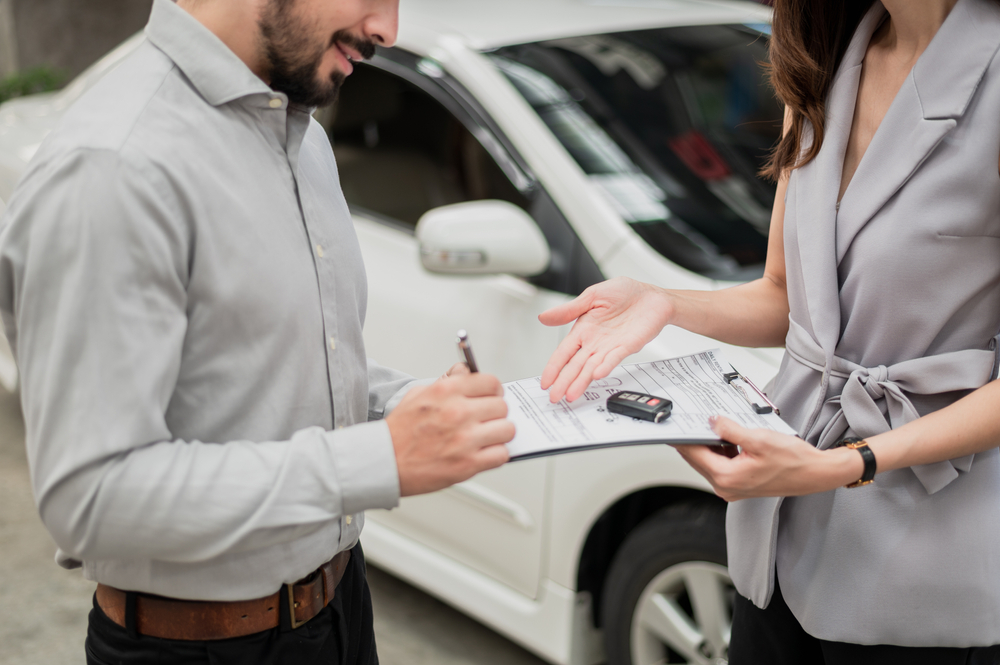Sometimes hiring a car just makes sense. Whether you find it cheaper not to own a vehicle and just rent when you need to, or your car is at the garage and alternative wheels are needed for a few days, a hire car is often the best solution. But renting a car can be a minefield of pitfalls, so our guide is here to help you navigate the tricky and often opaque world of hire cars.
Work out what you need
It sounds obvious, but the first step is to work out what you’re going to need and when you’ll need it. There’s no point in booking a week when you only need three days, and there’s no point in booking a massive 4x4 if you only need a small hatchback. It’s worth working out whether an electric hire car will work for you, too, although how cost- and time-effective that will be may depend on charging arrangements.
Do your research
Choosing a rental company isn’t always easy, especially as there are so many companies out there, but don’t be fooled by price comparison sites offering to do all the leg work for you. While it’s tempting to let them take the strain, you won’t always get the best deal for your needs that way. You see, the comparison sites don’t always give you a like-for-like quote, and several hidden costs may be lurking behind the headline figures. Doing the research yourself is naturally more difficult, but it’ll yield better results.

And price isn’t the only thing to be on the lookout for. Read the reviews, even though most hire car companies’ reviews are terrible, and for maximum peace of mind, pick a company you know of. If it sounds too good to be true, it probably is. Make sure you check the terms and conditions, too, looking at mileage limitations, extra drivers and age restrictions. Often, rental companies charge more for drivers aged 70 or over, or those under 25.
Also consider where the car hire office is, and where you’ll need to go to pick up and drop off the vehicle. If a cheaper option is further from where you want to be, it might prove a false economy in the end.
Be prepared
Make sure you have all the documentation you need – a driving licence is a given – to hand when you collect the car, and make sure you use a credit card to pay. It also pays to bring some accessories along just in case. Because hire cars are seldom top-of-the-range examples, a phone holder, charging cable and even a 12-volt cigarette lighter charging plug might be useful. Especially if you’re taking the car somewhere you don’t know.

Before heading to the rental desk, you should also get some excess reimbursement insurance (ERI). Although insurance is included with hire cars, they will usually have a huge excess that can be greater than €1,000, which will be levied if you have a bump. Although rental companies offer their own ERI at great expense, it’s much cheaper to use a third-party policy. Scour the web to find a recommended provider.
Look after it
It may sound obvious, but you’re driving someone else’s car and while it’s easy to be blase about it, you’ll save yourself a lot of hassle and money by taking care of it. However, some previous drivers may not have been so careful, so hire cars often have scrapes and dings from earlier engagements. When you collect the car, make sure to record these so you can’t be blamed for them later. Similarly, it pays to get lots of pictures when you hand the car back, so you can’t be blamed for subsequent damage, either.
Return it promptly
The car rental company will expect the car to be returned on or around the time on the booking, and some don’t give you all that much leeway. If in doubt, book for slightly more time than you need so you can be sure of getting the car back before the allotted time.
Consider fuel stops, too. Many car rental agreements require you to return the car with a full tank, with penalty fees if you fail to do so. Find a nearby petrol station to refuel at before dropping the car back, and don’t be tempted by the staff’s offer to fill the car for you, thereby allowing you to return the vehicle with any amount of fuel you like. Unsurprisingly, rental companies charge a premium for this service, and you’ll save money by doing it yourself.
And speaking of money, the hire company will often put a deposit on your credit card to cover any damage or fees, so make sure that money is returned in full after your rental period is over.